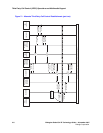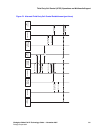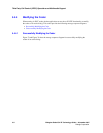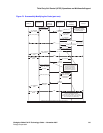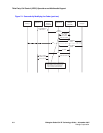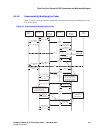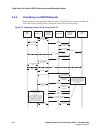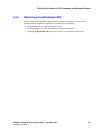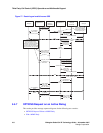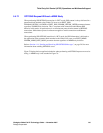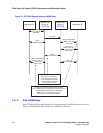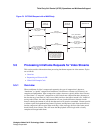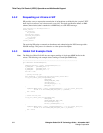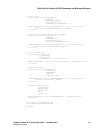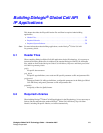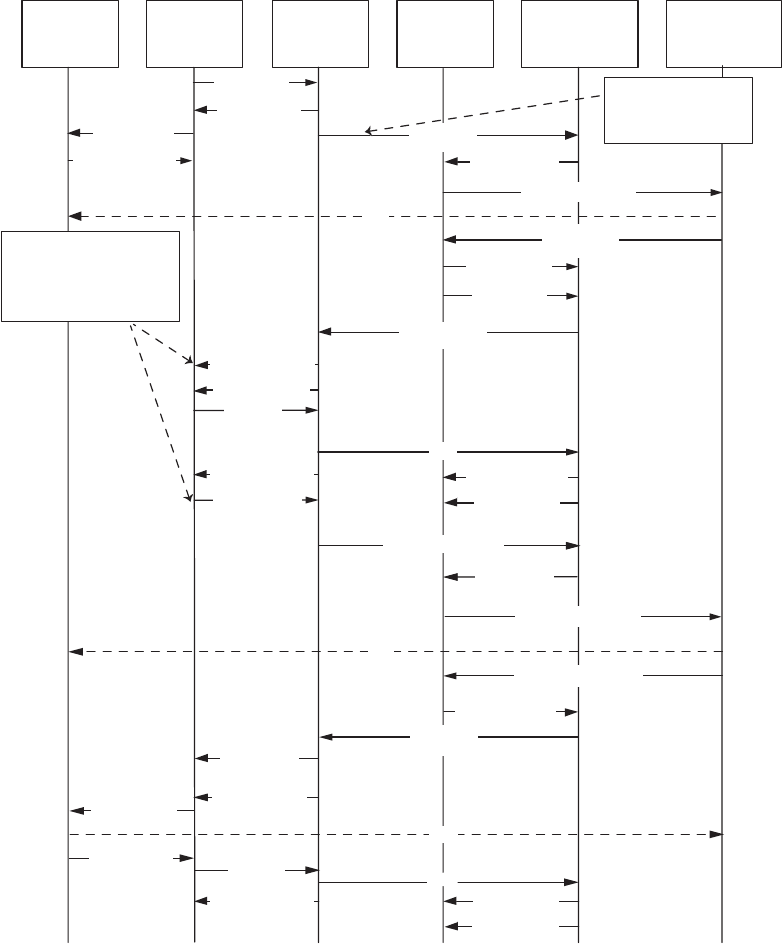
368 Dialogic
®
Global Call IP Technology Guide — November 2007
Dialogic Corporation
Third Party Call Control (3PCC) Operations and Multimedia Support
Figure 77. Receiving an Invalid Answer SDP
5.4.7 OPTIONS Request on an Active Dialog
This section provides message sequence diagrams for the following two scenarios:
• OPTIONS Request Without a MIME Body
• With a MIME Body
IPML
Library A
Application A
Global Call
Library A
(IPCCLIB)
Application B
Global Call
Library B
(IPCCLIB)
IPML
Library B
gc_MakeCall
SDP Offer 1
GCEV_DIALING
ipm_StartMedia
(RCV_ONLY)
INVITE
SDP Offer 1
GCEV_OFFERED
SDP Offer 1
ipm_StartMedia(TxRx)
IPMEV_START
_MEDIA
gc_SetUserInfo
Bad SDP Answer 1
gc_AnswerCall
200 OK
Bad SDP Answer 1
ACK
gc_SipAck
re-INVITE SDP Offer 2
GCEV_ANSWERED
GCEV_SIP_ACK
GCEV_SIP_ACK_OK
ipm_ModifyMedia(Tx/Rx)
RTP
gc_AcceptModifyCall
SDP Answer 2
GCEV_MODIFY
CALL_ACK
SDP Answer 2
GCEV_SIP_200OK
200 OK
SDP Answer 2
SDP offer has only one
receive coder specified,
allowing IPML to "start early"
on the originating side.
When the application
receives a Bad SDP Answer,
it does not change its current
media state. Instead, the application
completes the SIP transaction
by sending a SIP ACK message and
issuing a re-INVITE with a new SDP.
gc_ReqModifyCall
SDP Offer 2
GCEV_REQ_
MODIFY_CALL
SDP Offer 2
IPMEV_MODIFY_MEDIA
ipm_ModifyMedia
(TxRx)
RTP
IPMEV_MODIFY
_MEDIA
gc_SipAck
ACK
GCEV_ACCEPT
_MODIFY_CALL
GCEV_SIP_ACK
GCEV_SIP_ACK_OK
IPMEV_START_MEDIA
GCEV_CONNECTED
Bad SDP Answer 1
GCEV_SIP_200OK
RTP



